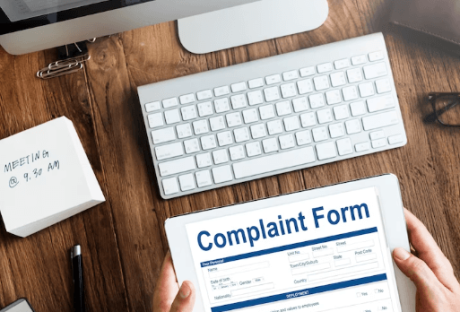Before we get to know why it might be necessary to hire a redundancy solicitor, it is much more important to know who is a redundancy solicitor and why you might need one.
When I say Redundancy, it is among the limited numbers that have the potential for fair reasons while dismissed from work. This happens when the employer is required to decrease the workforce and also close the business premises.
So now, if you get dismissed from work for a reason of redundancy, then you are entitled to a few statutory rights, including a redundancy payment. Now that you know what is a redundancy solicitor, let’s get into why you might need a solicitor and for what purpose.
Why Would I Need A Solicitor When Being Made Redundant?
There are certain situations when you might need a redundancy solicitor, so let’s get to know these situations.
- You might suspect that you are not in a redundancy situation.
- You might suspect that your selection is unfair.
- You might suspect that the procedure that your employer followed is incorrect.
- It is possible that a settlement agreement has been offered to you.
- You might have been as to become a volunteer for redundancy.
- You might not be sure whether you are getting the full redundancy package.
These are a few instances where the need for redundancy solicitors might be of great assistance.
Related: How A Solicitor Can Help You To Set Up A Business
What Are The Circumstances Of A Genuine Redundancy?
A redundancy is to be considered if the following are maintained:
- Suppose the whole business is closing temporarily or maybe permanently.
- It is possible that a particular workplace you are working in is either closing or maybe moving to another location.
- Suppose the job you have ceased to exist or has diminished, or maybe you are expecting your job to cease to exist or diminish in the future. This will happen if your employer is considering certain restructuring in the workplace.
The redundancy is not to be considered to be genuine if the following happens:
- Suppose your employer is replacing you with someone else, maybe with someone with someone who is willing to work for less amount.
- It is possible that the business is about to transfer its ownership, and maybe the new owner is going to employ you on totally different employment terms.
It is more likely that the latter will become a Transfer of Undertaking (TUPE) situation. Before you apply for this, it is better to get legal advice, or you might be in trouble since it is a grey area.
An Employer That Has Not Followed A Fair Procedure
In an ideal world, the employer’s redundancy process should have a set employment contract or handbook in place. Now what your employer should do is look for redundancies that can be avoided quite easily. Certain ways you can avoid redundancies are:
- Your employer can ask you to volunteer for a redundancy or even opt for an early retirement.
- The employer can also choose to lay off the employees who are self-employed.
- The employer can choose to ban or reduce any overtime.
- Your employer can offer you to get alternative work.
Now if your employer still wants to proceed toward redundancy, then they should really identify the certain employees who are to be made redundant. But the selection should be made in a fair way.
While selecting the employees, there are a few characteristics that should not be considered as the selecting factors, they are such as gender, ethnicity, or any such discriminating factor.
The selection criteria that are to be considered fair and impartial are:
- Aptitude
- Skills
- Qualifications
- Performance
- Record/Discipline
- Attendance
Now depending on these selection factors, the employer has to consult with these candidates; if they don’t, then the redundancy will be considered to be unfair as well. At least one meeting with the employer is important to discuss every aspect of this situation.
Well, suppose your employer has selected over 20 candidates for redundancy, in that case, a special rule is applied that the candidates need to follow through.
You should also be given a proper notice period to prepare yourself. The notice period should be like this:
- 1 week notice if you have been working in the organization for between one month and about two years.
- 1 week’s notice for each of the years the employee has worked in the company ranging between 2 to twelve years.
- Lastly, 12 weeks of total notice period; if the employer has been working in the company for over 12 years.
Which Is Better, Being Offered A Redundancy Package Or A Settlement?
Well, now, suppose you have been working in a company or organization for over two years; then, you are entitled to a statutory redundancy payment as well. For this, the specific calculation goes something like this.
- About 5 week’s payment is given to employees who have worked a full year after their 41st birthday.
- About a week’s worth of payment is given to employees who have worked a full year after their 22nd birthday.
- About half a week’s worth of payment is given to employees who have worked a full year till their 22nd birthday.
The total length of your service is capped at 20 years. Then your weekly payment is averaged over what you earn per week over a 12-week period till your redundancy notice.
Read Also:
- Breaking Down The Complexities Of Surrogacy And Assisted Conception Laws In The UK
- Preparing For Your Initial Consultation With An Immigration Lawyer
- Choosing The Right Conveyancing Solicitors For You























